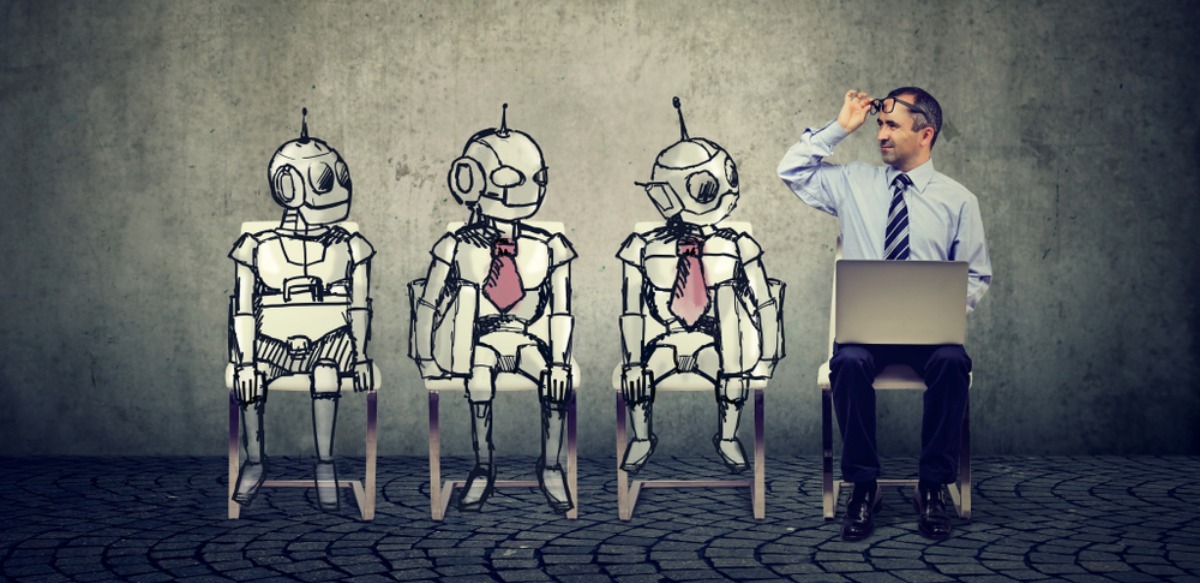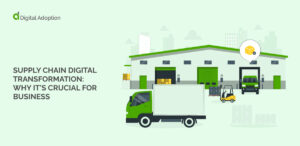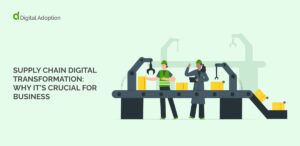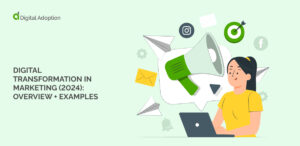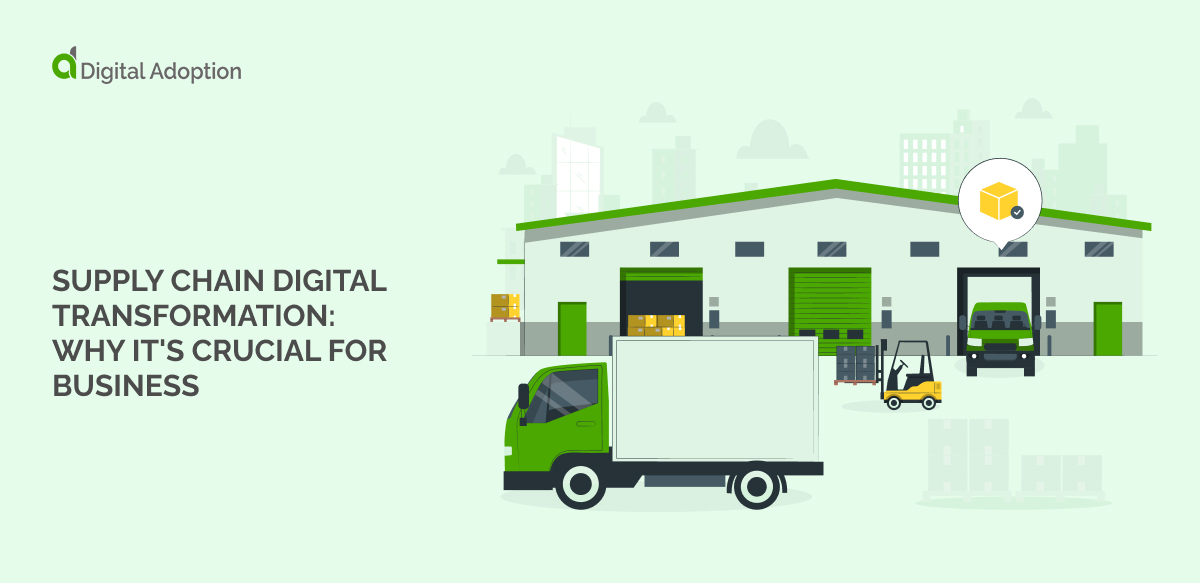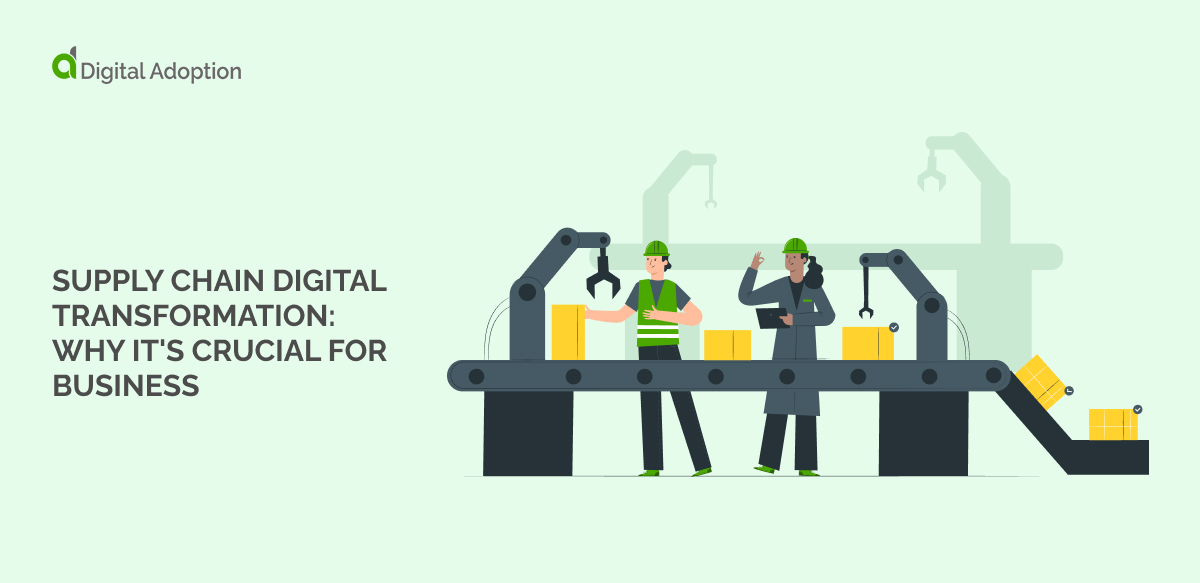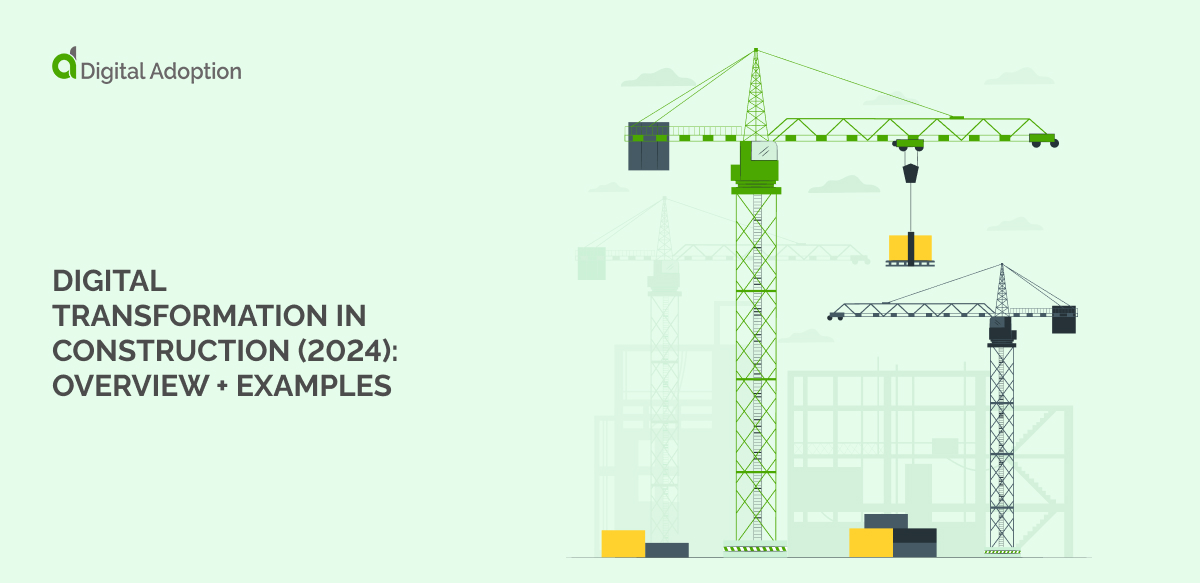It’s an exciting time for AI buffs.
Since Stanley Kubrick introduced the world to HAL 9000 in 2001: A Space Odyssey, movie nerds the world over have been captivated by the potential of AI.
And that potential is now taking the enterprise world by storm. Digital adoption machine learning is great news for businesses. Just a small step for AI, it’s a giant leap for enterprise innovation.
How digital adoption is dominating the enterprise world
Everywhere you turn, enterprise professionals are talking about the concept of “digital adoption”. It’s the single most important thing that turns enterprise technology into a valuable asset.
Companies used 16 SaaS apps on average in 2017, up 33% from the previous year. Business technology’s growth has been so rapid, users are struggling to keep pace with the learning necessary to use these tools effectively.
This is where digital adoption comes in.
It’s the bridge between technology and effective usability. Simply having the latest digital tools in place does not make them a worthwhile investment. The successful adoption of them by users does.
This is why many large organizations are choosing to use a Digital Adoption Platform (DAP) to ensure the successful and rapid adoption of new technology and its features.
How the DAP does this is a clever blend of digital adoption machine learning.
Digital adoption machine learning: a small step for AI
AI is transforming the way enterprises operate.
We’ve said it before: from trend predictions to workflow management tools and even media buying, AI is changing the way we work in a profound way.
It was way back in 1950 that famous WW1 code-breaker, Alan Turing, promoted the idea that machines can “think”.
Since then, AI has continued to evolve and develop new capabilities. Nowadays, machines can not only think, they can “learn.”
AI has learned how to handle customer queries and identify sales prospects. It can plan, solve problems, reason, perceive, move, manipulate, and even create.
“Nowhere has AI had a greater impact in the early stages of the 21st century than in the office. Machine-learning technologies are driving increases in productivity never before seen.”
Wired
Machine learning: a digital adoption gift
So, when it comes to digital adoption, the development of machine learning has been a great gift.
In a digital adoption context, AI’s ability to learn user behavior enables it to:
- Make predictions based on that behavior
- Auto-complete previously performed tasks
- Proactively engage with users at the best time
All of this improves the user experience of technology when an adoption tool that uses machine learning, like a Digital Adoption Platform, is applied to it.
AI’s ability to learn is incredibly useful in terms of automation, which has a dramatic impact on enterprise efficiency and productivity.
If you’ve heard of RPA, you’ll already know that it’s an emerging “intelligent automation” technology based on AI and machine learning.
It uses machine learning to create automated processes for the operation of digital systems.
In terms of digital adoption machine learning, attended RPA learns from the user’s actions in order to manage a digital system without further input from the user. This technology is also present in the DAP.
A giant leap for mankind’s enterprise
In the world of digital adoption machine learning, things are extremely exciting. IBM says:
“This shift – moving the burden of processes from humans to technology – has the potential to redesign the way work gets done within an enterprise.”
IBM
Not only that, but it has the potential to transform business profitability completely.
Consider what your employees might be able to achieve when AI is learning how to complete tasks for them. Imagine what it can do for employee morale, when each and every staff member effectively has their own robotic assistant.
Just think how powerful your customer experience can be if AI is learning how and when to keep them engaged.
Not only your customer experience, but your customer service and onboarding too.
“A satisfied customer is the best business strategy of all.”
Michael Lebouef
NewVoiceMedia’s 2018 “Serial Switchers” report states that, “Brands are failing to create the positive, emotional experiences that drive customer loyalty.”
It might seem counterintuitive for AI to be able to provide the customer with an emotional experience — you might think that’s exactly what humans can do that AI can’t.
But the fact of the matter is that AI can personalize interaction between enterprises and customers in a way that humans currently cannot. Not in a cost-effective manner anyway.
So this is what digital adoption machine learning has to offer — this and so much more. Watch this space for further developments and let us know how you’re using AI within your enterprise in the comments.

